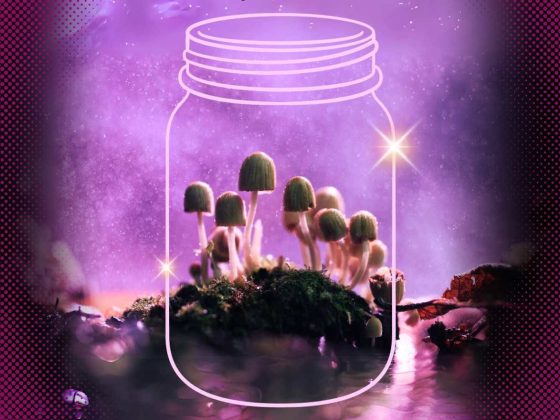If you’ve recently become interested in the spiritual world, or are thinking about using a psychic, then you may have found yourself wondering whether there’s a difference between a medium and a fortune teller. Is one the same as the other?
The terms are often used interchangeably, but there are, in fact, many differences between the two. Knowing how a medium differs from a fortune teller is important, as it’ll help you select the psychic service that best suits your needs.
Keep reading for the key differences between the two – and some may surprise you!
The Future
As the name implies, a fortune teller will be concerned with telling you what will unfold in your future – this could include important events, relationships, and even things like whether you’ll have children or move abroad. A fortune teller may even claim that they can tell you about what will happen to your family members or friends in the coming years.
A medium, however, will often be much more concerned with the here and now and will usually believe that every individual has free will to choose their own paths: the future is in a constant state of flux, in other words. A medium is more likely to work with their clients to see how recurring patterns and behaviors have affected the latter’s life and choices to date and how altering these things could positively affect their future. They may even look to a client’s past lives for clues when it comes to outcomes that seem to be perpetually repeating themselves.
Finding a fortune teller online or a medium is equally easy: now, many psychic and spiritual services offer virtual or telephone readings. In both cases, finding out as much as you can about the individual and the service they offer is vital – read as many reviews as possible and, ideally, arrange to have a chat with the fortune teller or medium before committing to a session, to make sure you’re happy with the service they’re offering. If they’re legit, they should be happy for this to happen.
Why as well as What
A fortune teller may be able to give the individual they’re reading for information on what will happen to them in the future, but not the reasons for it, nor the emotional landscape around these sets of circumstances, and the influences that were at play in their unfolding.
While a fortune teller will usually use objects to assist in their divination – such as a crystal ball – an authentic medium will rely simply on their psychic ability, as well (in some cases) as their access to messages from the spirit realm. Mediums can often discern a person’s aura, too, and can interpret its energy to help understand why an event may unfold the way it will, rather than just the event itself. If this outcome isn’t desirable, the medium can use their skills and perception to work with their client to change this outcome to a happier one.
Curses and Cons
Unfairly or otherwise, fortune tellers have a reputation for scaring their clients, or potential clients, with claims that they have a curse on them or using other scare tactics to persuade an individual to pay for their services. While this is no doubt true of a certain percentage of fortune tellers, not all can be tarred with the same brush. Simply doing some groundwork, checking out their reputation, and listening to your own intuition can help you avoid any scammers in this regard. In general, however, if you’re ever told that you need to employ a psychic of any description to avoid catastrophe, then steer well clear.
An authentic, credible medium won’t focus on telling you what your future holds but will, instead, wish to help you through a difficult time, make contact with a loved one who has passed, or find ways to help you resolve issues or recurring problems in your life.
Origins and Roots
Fortune-telling was practiced as far back as 4,000 BCE in ancient China, Egypt, Babylonia, and Chaldea. Playing cards, dice, scattered water, and even fire were just a few of the things used to predict future events. The behavior of wild animals was also looked to as a form of prophecy, and crystal balls and tea leaves have also been used for divination for thousands of years.
Mediumship, too, has its roots in ancient times, although it exploded in popularity in the 19th century. It’s been suggested that a prehistoric cave painting in France that dates all the way back to around 13,000 BCE and depicts a shaman merging with the spirit of an animal is the first surviving representation of a medium at work.
So there you have it: the fundamental ways in which fortune tellers and mediums differ. Use the above information to help you choose which – if either – is right for you. Always remember that you should come away from a visit to any sort of proclaimed psychic feeling positive and uplifted and with a clearer vision of the path before you.












